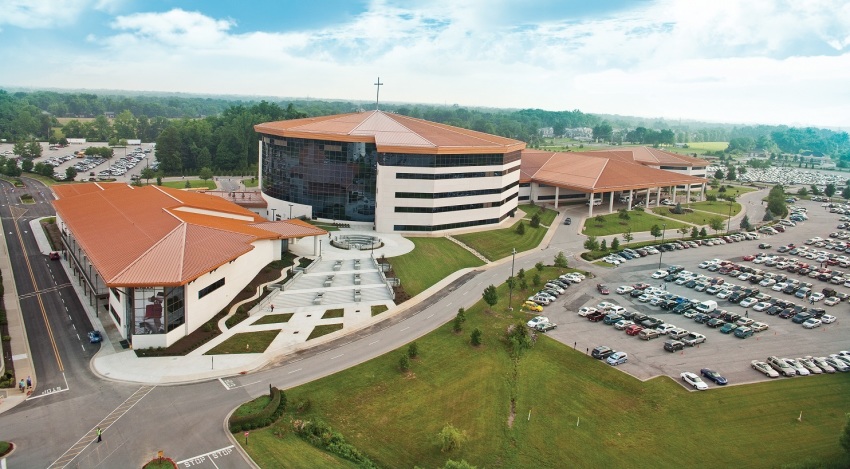Ky. megachurch opening 2 new ‘community campuses’ to improve outreach to different groups

A multisite megachurch in Kentucky will soon be opening up two new “community campuses” aimed at improving outreach to assorted demographic groups.
Southeast Christian Church, an evangelical congregation based in Louisville, will be officially launching a “Multination Campus” on Aug. 16 and a Beechmont campus on Sept. 13.
Comprised largely of immigrants to the area, the Multination Campus is presently meeting, albeit under limited circumstances and following social distancing guidelines. The Beechmont campus stems from SECC's missional relationship with the HOPE Place, a local Christian nonprofit founded in 2018 that helps churches with ministry work.
SECC Associate Pastor Matt Reagan explained in comments emailed to The Christian Post the difference between his church’s regional campuses and the new community campuses.
“A Regional Campus reaches a large area and broad demographic spanning multiple communities. While we have watched God do more than we could ever imagine, we’ve recently felt led to launch a new type of campus called a ‘Community’ Campus,’” explained Reagan.
“A Community Campus is a new type of campus that’s an intentional effort to reach a focused demographic not currently being served by one of our Regional campuses due to barriers such as geography restrictions and or cultural differences.”
Reagan added that he was hopeful that “alongside our Regional Campuses, our Community Campuses will allow us to even better share the boundary breaking love of Jesus with our communities one person at a time.”
At present, SECC lists 10 campuses on its website, which are located in Louisville proper or within 50 miles of the city, including nearby Jeffersonville, Indiana.
In May, U.S. District Judge Gregory F. Van Tatenhove ruled that churches were allowed to hold in-person worship services provided they adhered to social distancing guidelines.
In his decision, the judge concluded that Governor Andy Beshear’s orders restricting in-person services had been in violation of the constitutional rights of houses of worship.
“Evidence that the risk of contagion is heightened in a religious setting any more than a secular one is lacking,” read the ruling, in part.
“If social distancing is good enough for Home Depot and Kroger, it is good enough for in-person religious services which, unlike the foregoing, benefit from constitutional protection.”
Last week, Beshear had a phone conversation with Kentucky Council of Churches, asking the 1,100-congregation group to halt in-person services for two weeks.
A request rather than an order, the governor’s statement came in response to a sharp increase in COVID-19 cases in Kentucky, according to Kentucky.com.
SECC Executive Pastor Tim Hester explained in comments emailed to CP on Friday that his church was “maintaining a posture of flexibility in determining how we’ll continue to meet as a church and whether or not we actually launch on the proposed dates.”
“First and foremost, we continue to be motivated by the love of our congregation and our community and will continue to prayerfully make appropriate decisions that provide the safest experiences for all,” said Hester.
The community campuses are coming at a time in which many are debating the state of race relations within the church and the broader United States.



























